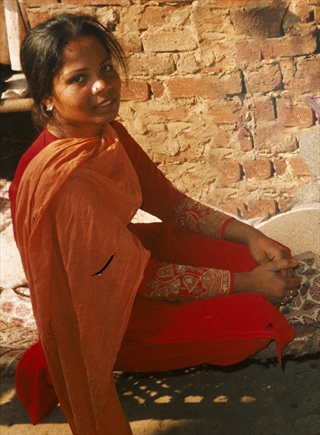
Afghanistan and Pakistan were among the 15 States elected last week (16 October) to serve on the UN Human Rights Council, with human rights groups calling it a “crisis in the UN and its intergovernmental system”.
Maliha Lodhi, Pakistan’s permanent representative to the UN, called it an “endorsement of Pakistan’s strong commitment to human rights… Pakistan’s entire leadership, parliament and judiciary have all proactively pushed the human rights agenda”.
However, Pakistani activists called it “a setback to their efforts for the promotion of freedom of speech and equal minority rights in the country [as] this will embolden the country’s authorities to continue their suppression of dissidents and minorities”.
Human Rights Watch, meanwhile, highlighted the areas in which the two countries need to improve.
In its newly released Annual Report on Human Rights and Democracy in the World in 2016, the European Council said of Afghanistan: “In 2016 the human rights situation remained precarious … especially with regard to women’s and children’s rights and the situation of human rights defenders and the media.”
Of Pakistan, it said “wide-ranging and serious human rights concerns persist … and are exacerbated by a weak criminal justice system and religious and militant extremism. Security challenges have continued to slow progress on access to justice and the rule of law”.
In May, an official from Pakistan’s Punjab province acknowledged that the authorities had failed to protect Christians and other non-Muslims from Islamic extremists.
‘Real risk’
Both Pakistan and Afghanistan feature high on the Open Doors 2017 World Watch List of the 50 countries where it is most difficult to live as a Christian.
Pakistan, a country with stringent blasphemy laws, is fourth, while Afghanistan, where punishment for apostasy is death, is third.
Earlier this month, Amnesty International’s report on Europe’s deportation of asylum seekers to Afghanistan noted: “All returnees face a real risk of serious human rights violations,” but that some, such as religious minorities and converts to Christianity, face additional risks.
Other newly elected members on the UN Human Rights Council are Angola, Australia, Chile, the Democratic Republic of Congo, Mexico, Nepal, Nigeria, Peru, Qatar, Senegal, Slovakia, Spain and Ukraine. Mexico, Nigeria and Qatar also feature on the 2017 Open Doors World Watch List
On the same day that Nepal was elected as one of the 15 new members, its president signed a controversial bill into law, criminalising religious conversion and the “hurting of religious sentiment”, as two parliamentarians warned religious freedom in the country was “teetering on the edge”.
